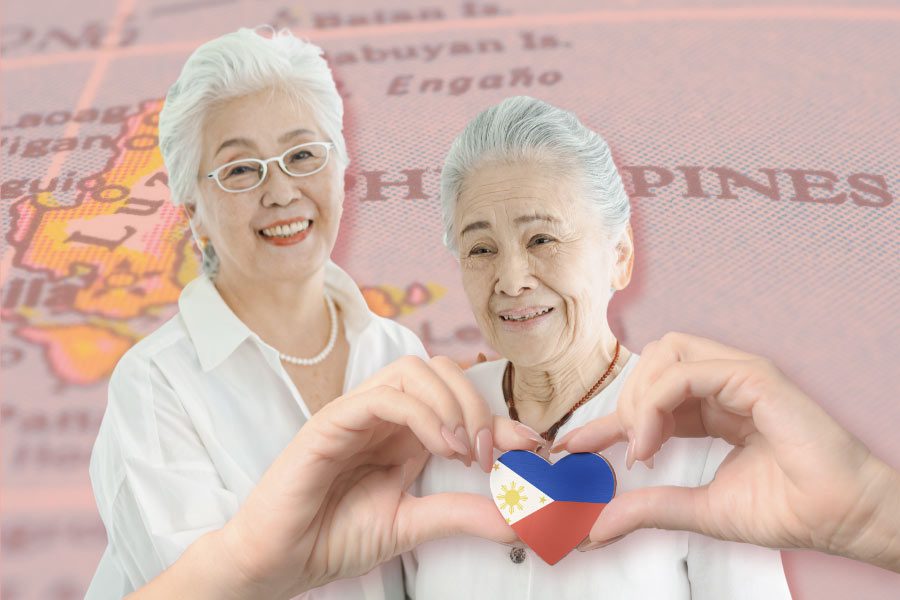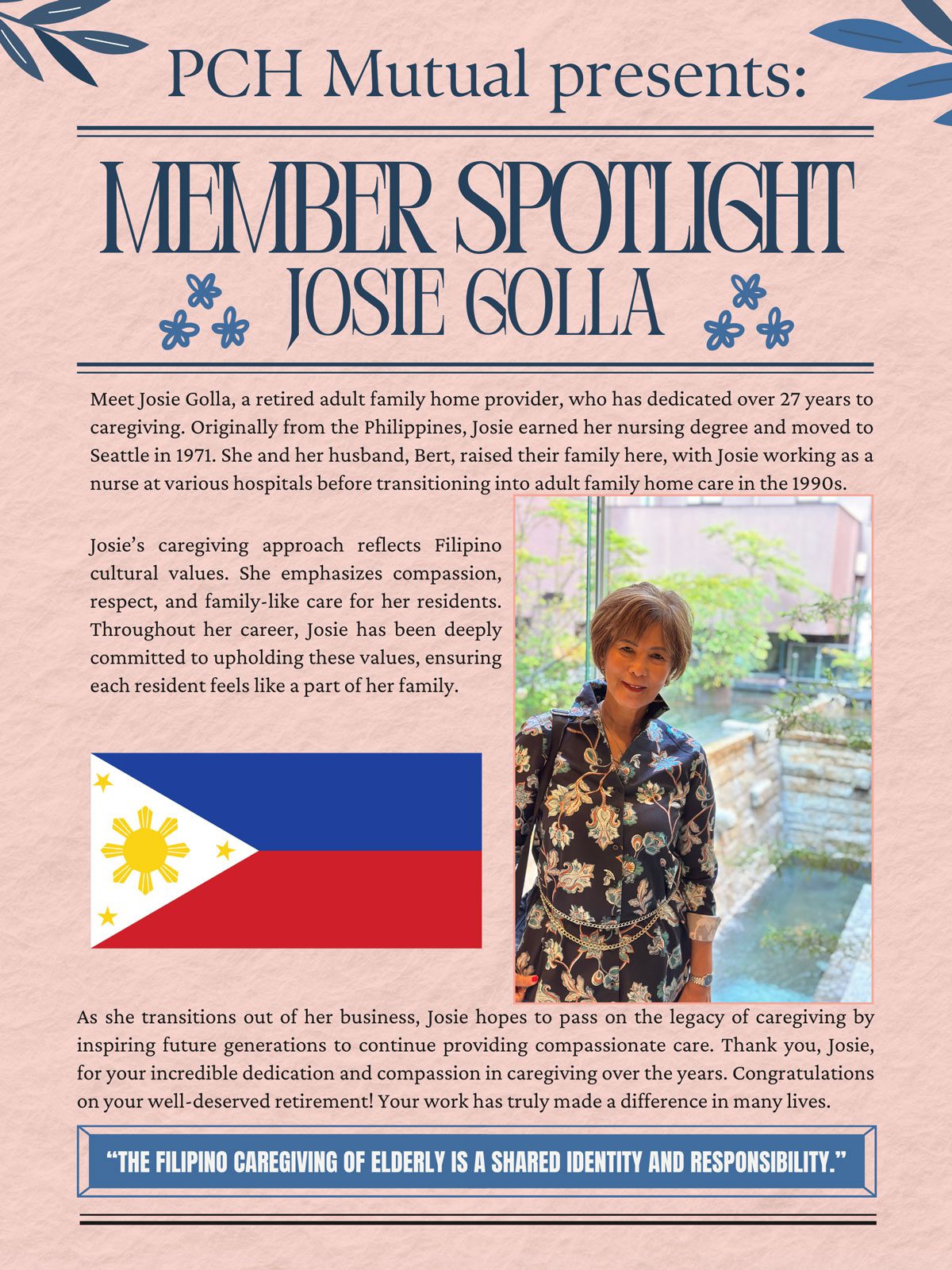A Global Perspective on Elder Care: Understanding Filipino Caregiving Culture
In our latest elder care blog, we spotlight Josie Golla, a Filipino-American caregiver and former adult family home owner, who shares how Filipino caregiving values shape her approach to elder care. Discover how these cultural traditions influence the caregiving industry and why Filipino caregivers are recognized worldwide for their dedication.

Filipino culture is deeply rooted in respect for elders and making caregiving an essential part of daily life. The Philippines is renowned for its outstanding caregiving, especially in nursing and medical fields. Whether in care homes or private settings, Filipino caregivers are valued for their compassion and work ethic.
At the heart of Filipino caregiving is “kapwa”, a sense of shared identity that emphasizes community and family. In Filipino families, caring for the elderly is a communal responsibility. Elders are viewed as wise and highly valued. The responsibility to care for older generations is not only a moral duty, but a social expectation ingrained in the culture. This approach is similar to other cultures in Asia and Latin America, whereas in the United Kingdom and United States, institutional care is more common.
In the Philippines, it is considered somewhat taboo to place a loved one in a long term care home. Although there is an increasing number of care facilities, the preference remains for elders to be cared for at home. Filipino families view the neglect of caregiving or providing resources to needy family members as a shameful act, described as “nakakahiya”.
The Philippine Constitution highlights the country’s strong cultural emphasis on family responsibility. In Article XV, Section 4, it states: “The family has the duty to care for its elderly members although the State may also do so through just programs of social security.” Familial duty is not just a moral obligation, but a fundamental part of maintaining social harmony and respect for elders. The Constitution acknowledges that the state can play a role in supporting elderly care. However, it underscores that the primary responsibility lies with the family.
Josie Golla, a Filipino-American caregiver and former owner of an adult family home in Seattle, shares that Filipino caregiving values, such as “kapwa”, shaped her approach to caregiving. “In our adult family homes, we treat residents like family. We give care with compassion and respect, and when they pass away, we grieve as if they were our own relatives,” Josie explains.
In a changing caregiving landscape, Josie advises that caregiving education be made more accessible and government support for adult family homes be strengthened.
Moreover, Filipino caregivers are known for their exceptional work ethic and adaptability, which makes them stand out in the caregiving roles around the world. They are often praised for their ability to navigate tough situations with ease and actively listen to patients. A unique trait of Filipino caregiving is their ability to connect with clients emotionally. This behavior stems from the Filipino cultural value of maintaining harmony and respect in interpersonal relationships. Here at PCH Mutual, we are grateful for our Filipino caregivers, like Josie, and their ability to provide empathetic eldercare.
